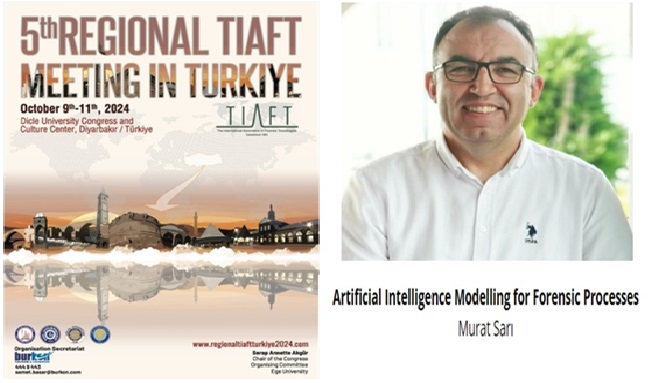
This presentation explores the application of artificial intelligence (AI) in forensic science, focusing on modeling techniques to address complexities in forensic processes. It highlights AI’s capability to analyze nonlinear, uncertain, and stochastic behaviors, offering practical examples such as resistance modeling. The discussion concludes with insights into the potential of AI to enhance forensic investigations and future research directions.
The presentation focuses on leveraging artificial intelligence (AI) to address challenges in forensic processes, emphasizing the importance of advanced modeling techniques in capturing complex forensic behaviors. Forensic science, bridging the domains of legal and scientific inquiry, often involves analyzing diverse data sources to support critical decision-making in criminal and civil cases. The talk introduces mathematical and AI-based modeling strategies, discussing their potential to enhance the understanding and prediction of forensic phenomena.
Key areas covered include problem classification into forward and inverse models, a comparison of continuous, discrete, simulation, and AI methods, and the role of AI in tackling nonlinearities, uncertainties, and stochastic behaviors inherent in real-world forensic scenarios. Illustrative examples from various studies demonstrate the efficacy of AI, such as predicting tibial motion, assessing low back pain levels, and modeling resistance to HIV protease inhibitors. These examples highlight the versatility and precision of AI in both theoretical and empirical contexts.
The presentation concludes by discussing the limitations and opportunities of AI in forensics, including the necessity for realistic model design and the integration of interdisciplinary approaches. Future directions encourage expanding AI’s scope to analyze increasingly complex forensic processes while maintaining ethical and legal compliance.
https://www.regionaltiaftturkiye2024.com/?p=home